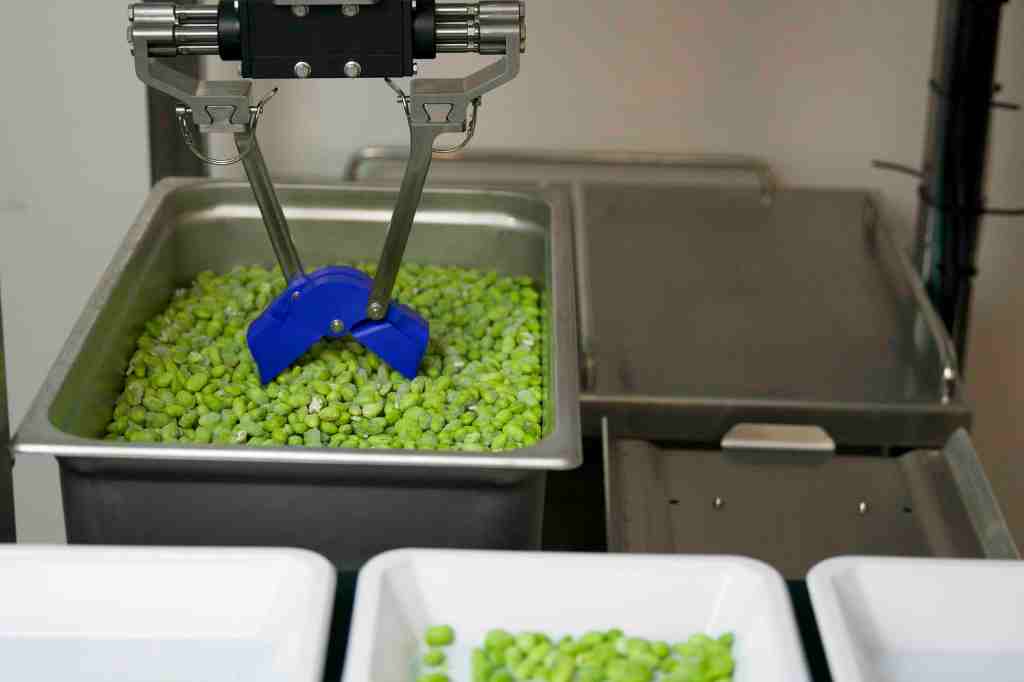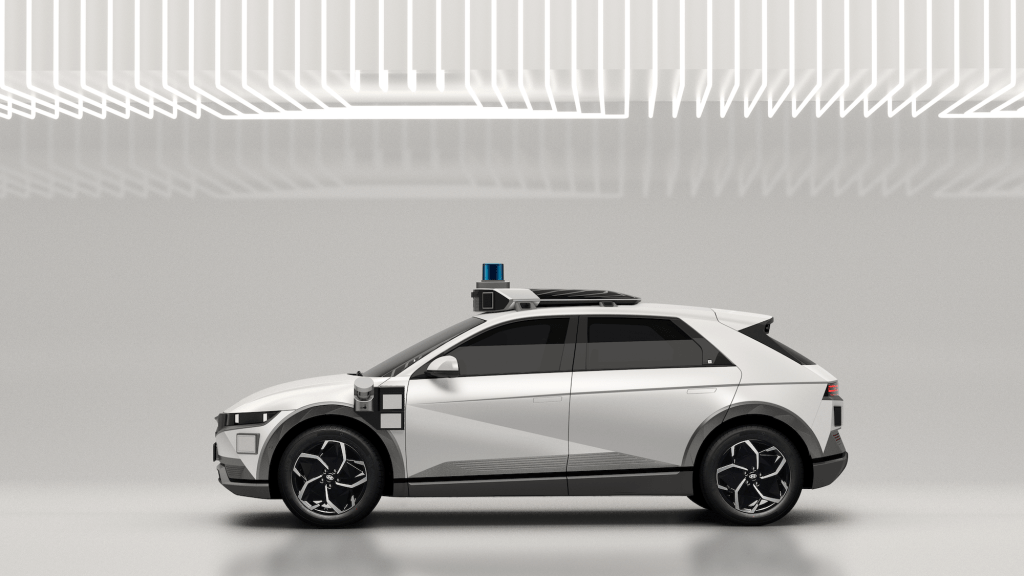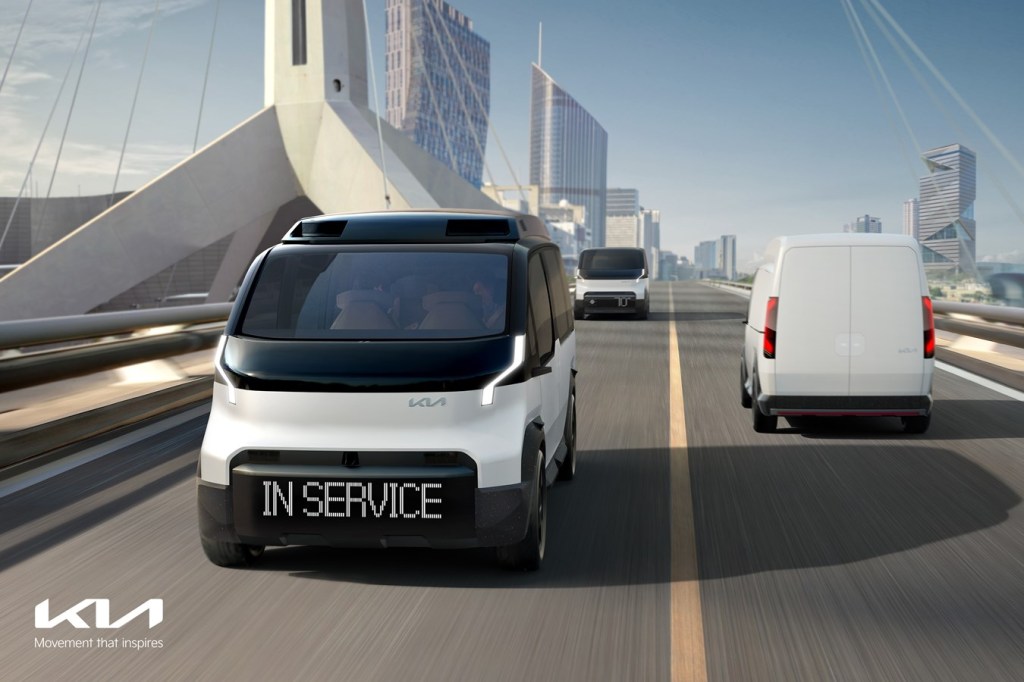
Kia is following up a strong year for its passenger EVs by sharing what it wants to do for businesses looking to go electric. The Korean automaker just unveiled at CES 2024 a forthcoming lineup of electric vans, trucks, ride-hailing and last-mile delivery vehicles all set to be built on a new modular platform.
And it appears to already have its first customer. The company announced during the Monday press conference that is has formed a global partnership with Uber, according to Pierre-Martin Bos, vice president of Kia’s new so-called PVB business division.
Not only will the underlying electric powertrain be modular — similar to other skateboard-style designs that have become popular across the industry — but the tops of these vehicles will be as well. What that looks like in practice, according to Kia, are vehicles with fixed driver cabs that can have the rest of the vehicle’s cabin swapped out.
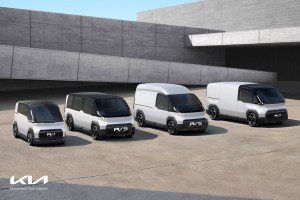
These cabins (Kia calls them “life modules”) connect to the chassis using both mechanical couplings and electromagnets, though Kia was light on the details about how that will work.
Kia was light on specs, but said it is building a dedicated plant to make them in South Korea that it claims will be operational in 2025. Kia expects an annual capacity of 150,000 vehicles but said that could grow to 300,000 globally.
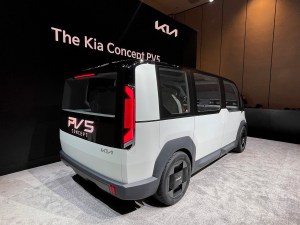
The first model to be made will be the Kia PV5, a three-row van with futuristic styling slated to hit the road in 2025 at a price tag of around $35,000. Kia also showed renders of a larger version (the PV7) due in 2027 and a smaller, more Smart Car-sized option (the PV1). The company shared that it plans a robotaxi version could come in 2028, and that vehicles built on the platform may eventually be available to regular consumers.
The look of the vehicles is fairly stark and utilitarian. None of them are remotely as adorable as sibling company Hyundai’s head-turning Staria van. Design-wise, they are not all that dissimilar from what struggling EV startup Canoo has spent the last few years promising to offer at scale. Hyundai and Canoo were once involved in a partnership that was abruptly called off by the EV startup’s CEO, who made vague allusions at the time about protecting his company’s IP.
This post has been updated with details from Kia’s CES 2024 press conference.

